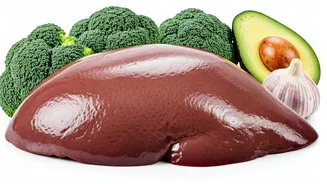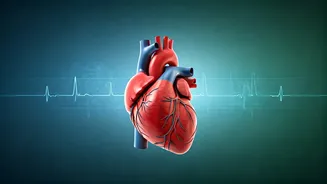Embrace a Healthy Diet
One of the most impactful steps in managing fatty liver disease is adopting a balanced diet. Start by limiting your intake of processed foods, sugary drinks,
and saturated fats. Instead, focus on incorporating whole, unprocessed foods into your meals. Emphasize fruits, vegetables, and lean proteins. Fruits like berries, rich in antioxidants, can help protect liver cells from damage. Vegetables, particularly cruciferous varieties such as broccoli and cauliflower, support detoxification processes in the liver. Lean proteins from sources like fish and poultry provide essential nutrients without overburdening the liver. Regular consumption of fiber-rich foods, like whole grains, aids in stabilizing blood sugar levels, reducing strain on the liver. Making these dietary choices can greatly enhance liver health and mitigate the effects of fatty liver disease. Moreover, it's crucial to regulate portion sizes to avoid overeating, which can lead to weight gain and exacerbate the condition. A well-rounded approach to nutrition can be a fundamental part of the recovery process.
Incorporate Liver-Boosting Foods
Several foods possess properties that actively assist in improving liver function and should be an integral part of your diet. One of the primary food groups that should be included is cruciferous vegetables. Broccoli, Brussels sprouts, and cauliflower contain compounds that assist the liver in detoxification. Leafy green vegetables like spinach and kale are packed with antioxidants and essential nutrients that protect liver cells from damage. Berries, particularly blueberries and strawberries, are high in antioxidants that can protect the liver from oxidative stress. Garlic is another potent food item that activates liver enzymes, which aid in detoxification. Additionally, foods rich in omega-3 fatty acids, such as salmon and flaxseeds, help reduce inflammation in the liver. Incorporating these foods into your daily meals offers a delicious and effective way to nourish and support your liver, helping to reverse the effects of fatty liver disease and foster better overall health.
Stay Hydrated Consistently
Maintaining optimal hydration is crucial for overall health and plays a significant role in liver function. Drinking an adequate amount of water supports the liver's detoxification processes, which help remove harmful substances from the body. Aim to drink at least eight glasses of water per day. This amount can vary depending on individual needs and activity levels. Staying adequately hydrated helps dilute toxins, facilitating their efficient removal through the kidneys. Furthermore, water assists in the absorption of nutrients and the proper functioning of the digestive system. This can alleviate some of the stress on the liver. Avoid sugary beverages, as they can contribute to fatty liver disease. Instead, choose water or herbal teas. Regular hydration is essential for maintaining liver health and promoting optimal bodily function, playing a central role in your recovery process.
Exercise Regularly and Often
Regular physical activity is an essential component of managing and potentially reversing fatty liver disease. Exercise aids in weight loss and also enhances insulin sensitivity, thereby reducing the buildup of fat in the liver. Aim for at least 30 minutes of moderate-intensity exercise most days of the week, this could be brisk walking, cycling, or swimming. Incorporate a combination of cardiovascular exercises and strength training exercises, which will benefit overall health. Regular exercise also improves blood circulation and reduces inflammation throughout the body. Furthermore, physical activity can boost your energy levels and mood. Consulting with a healthcare provider can help tailor an exercise plan to your specific needs and abilities. A consistent exercise routine is a powerful tool in improving liver health and promoting a healthier lifestyle. Exercise offers several benefits beyond weight management, contributing to overall health and well-being.
Limit Alcohol Intake
Alcohol consumption is a significant contributor to fatty liver disease, and thus, limiting or completely avoiding alcohol is critical for recovery. Alcohol metabolism places a heavy burden on the liver, and excessive alcohol consumption causes inflammation and damage to liver cells. Those diagnosed with fatty liver disease should strictly abstain from alcohol to prevent further deterioration of their liver health. If you struggle with alcohol dependence, seek professional help and consider support groups for guidance. Reducing alcohol intake allows the liver to recover and repair itself. Even moderate drinking can slow down the healing process. Therefore, making a complete shift from alcohol and adhering to this lifestyle change is essential. This can make a significant difference in reversing fatty liver disease and improving overall well-being. Prioritizing alcohol-free living is a crucial step towards long-term liver health.





















